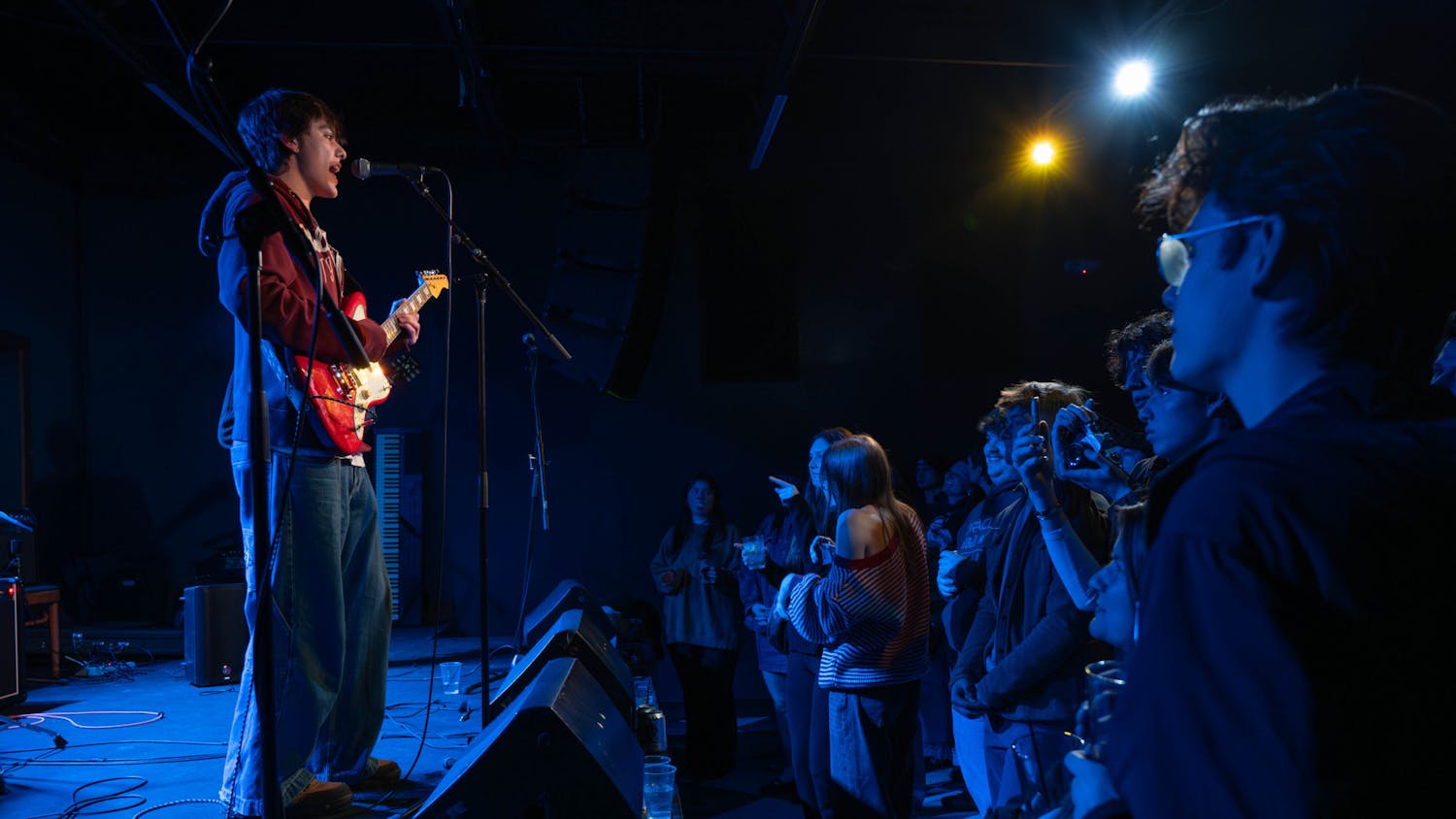“The Period Project” is an initiative started by an OU freshman to raise money to buy feminine products for those who can’t afford them.
When freshman Maddie Sloat was a senior in high school, she had an eye-opening experience when she met a classmate in the restroom who was upset.
The girl confessed to Sloat she had been using the same pad for nearly four days and was too embarrassed to go to the nurse’s office to ask for another. Sloat said she immediately gave the girl all of the feminine products she was carrying, and the idea for “The Period Project” was formed.
Sloat, who is studying communication and is from Pittsburgh, started a GoFundMe on Feb. 7 titled “The Period Project” to raise money to buy feminine products for women in the Athens area who can’t afford them.
“Our focus is collecting and donating feminine products to local communities that are in poverty,” Sloat said. “And also trying to start a conversation on campus and in general about menstruation and women’s health.”
The project took off. Sloat, teamed with a few of her friends, met their original goal of $500 the day after the GoFundMe was launched. Now, she has raised the goal to $1,000.
“It’s really picked up, which is awesome,” Sloat said. “I’m really excited we’ve gotten the support we have.”
Sloat said she hopes to donate the original $500 worth of products to local Athens charities GoodWorks and The Timothy House this week. The money should purchase about 100 boxes of feminine products. In the future, Sloat said she wants to look into donating to local school districts as well.
Feminine products are taxed in 40 out of the 50 states, including Ohio, and a year’s supply can cost more than $70, according to the 2014 The Shriver Report, an annual report that looks at women's issues in America. A standard box of Tampax tampons costs about $6 to $10 and a box of pads, depending on absorbency and amount can cost about $6 to $20, according to Amazon.
With more than 40 million women living below or near the poverty line, feminine products are not typically covered by health insurance, and they cannot be purchased with food stamps.
Thirty percent of people in Athens County live in poverty, according to the U.S. Census Bureau data from 2009 to 2013.
Because of that, Sloat said Athens was the perfect place to launch her initiative.
“When I came to OU, I knew I had a very unique opportunity here because we have our campus in a very rural, impoverished community,” Sloat said. “It was just a good time to start it.”
Crystal Jones, director of nursing for the Athens County Health Department, said despite the poverty that plagues much of Athens, the health department does not get many requests for feminine products.
“We do not routinely receive requests or phone inquiries at the health department for personal hygiene products,” Jones said in an email.
Jones said she is only aware of church-related groups in the area that provide these products on a limited basis.
Sloat’s idea is not unheard of. Nancy Kramer founded a national organization “Free the Tampon” in 2013, which advocates for free access to feminine products in all public spaces.
However, Sloat’s project is not part of national organization. Someday in the near future, she hopes to turn her project into a student organization and get more students to work toward the cause.
She has also been collaborating with Ohio University's Women’s Center on potentially organizing a menstruation-related program or event in the future.
Sarah Jenkins, program coordinator for the Women’s Center, said the universal issue of accessible feminine products is important in all communities.
“Menstruation products are a really necessary part of our lives and yet we are forced to pay quite a bit of money for them,” Jenkins said. “I think that lends itself to some important questions. Are we valuing women? Are we valuing their money? And are we valuing their bodies?”
Jenkins compared the access of feminine products to the access of condoms and other sex-related products such as Viagra, which is used to treat erectile dysfunction.
“It’s a lot easier to abstain from sex than it is to abstain from menstruating,” Jenkins said.
The Women’s Center, located on the fourth floor of Baker Center, is one of the only places on campus to provide free feminine products at the request of anyone who visits the center.
{{tncms-asset app="editorial" id="a24ce7a2-d024-11e5-8865-4bc39cbc6f53"}}
Jenkins said she is very supportive of Sloat’s project, not only as a method of charity, but as a way to raise awareness and fight the stigma associated with menstruating.
“Menstruation is something that is really shadowed with a lot of shame and secrecy in our society, which is so sad because it’s so normal,” Jenkins said. “Somehow people think it’s gross or it’s dirty in some way … and I think that changing the conversation around menstruation is going to be an important part of getting us access to healthy and safe products that are covered by health insurance.”
Sloat is embracing the activism side of her initiative, and said she hopes her work will start a movement on campus about women’s health and the possibility of providing free feminine products.
“I think this is a very feminist idea because before we could ever … establish ourselves as equal, we have to come down to this base,” she said. “Women have periods so they can reproduce. That is the foundation of life.”
@alleeexxiis
ae595714@ohio.edu






